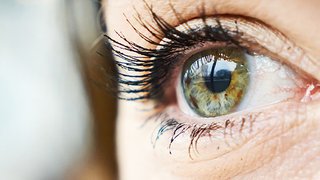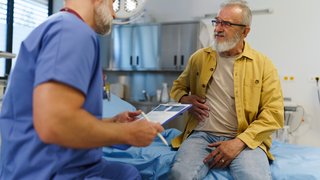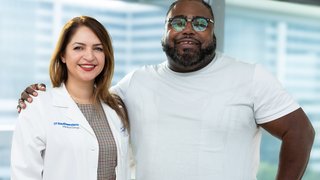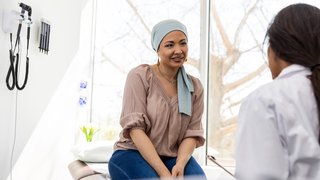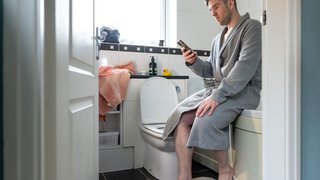CAR T-cell therapy experts push boundaries of pediatric cancer treatment
September 2, 2021

In 2017, the CAR T-cell therapy drug KYMRIAH™ was approved by the U.S. Food and Drug Association (FDA) for patients up to age 25 with B-cell precursor acute lymphoblastic leukemia (ALL) – the most common type of pediatric leukemia – whose disease has returned or is resistant to other treatments.
The drug has been groundbreaking for families who otherwise would have had no other treatment options for their children. With KYMRIAH, approximately 82 percent of pediatric patients achieve remission and 66 percent are relapse-free after 18 months. Prior to KYMRIAH, the survival rate was just 20-30 percent.
UT Southwestern and Children’s Health were instrumental in the research that led to KYMRIAH’s FDA approval. Our CAR T-cell therapy expertise is unmatched. We are:
- The only center in the region (one of just 13 in the U.S.) that participated in the CTL019 clinical trial (ENSIGN) to determine the feasibility and safety of the drug in 2015.
- One of 25 sites for the Novartis-sponsored ELIANA study – the first global clinical trial of CAR T-cell therapy for the treatment of refractory and relapsed pediatric ALL.
Less than half a percent of cancers in the U.S. are ALL, and 80 percent occur in children. Standard chemotherapy cures precursor B-cell ALL in 85-90 percent of children. Of the 10-15 percent in this small patient population whose cancer comes back or doesn’t respond to chemo (relapsed or refractory), a high volume – approximately 30 patients annually – come to UT Southwestern for the most advanced treatment.
Chimeric antigen receptor (CAR) T-cell therapy is a form of immunotherapy that uses the body’s own immune T-cells to target cancer cells, similar to how the body fights other infections. Cancer cells “learn” to avoid detection by the immune system, so we re-engineer a portion of the patient’s T-cells to seek the CD19 protein in cancerous B-cells and destroy them.
UT Southwestern is pushing the boundaries of how CAR T-cell technology and new cell therapies can change the trajectory of other types of cancers. My lab has developed a promising CAR T-cell therapy for pediatric acute myeloid leukemia (AML), which we hope to move into clinical trials in the near future. And we are one of a few select U.S. medical centers participating in the KarMMa clinical trial for BB2121, the most advanced CAR T-cell therapy for relapsed and refractory multiple myeloma in adults.
As we look toward the future of CAR T-cell therapy, we continue to optimize KYMRIAH treatment in the FDA-approved patient population. Our current focus revolves around four key questions that families often ask when they bring their child to UT Southwestern for treatment.
1. Should my child start CAR T-cell therapy earlier?
Right now, KYMRIAH is approved only in patients whose B-cell ALL has not responded to or has returned after standard treatment. We know the drug is highly effective, so we are working to discover the optimal time to treat with KYMRIAH in a patient’s care plan.
To help answer this question, we were the first Texas site – and one of just a few in the U.S. – to participate in the Cassiopeia Trial, a Novartis-sponsored phase II study to determine whether KYMRIAH can safely and effectively bring pediatric and young adult patients into remission who:
- Are diagnosed with new, high-risk acute B-cell ALL,
- Have completed two courses of first-line treatment (induction and consolidation), and
- Still have residual disease.
The most important step is to begin the discussion with your child’s oncologists and cell therapy team early on, as prior therapies may also affect outcomes post CAR-T cells.
2. Will giving more CAR T-cells per infusion produce better results?
Does more mean better? We have chased this question since 2017, when we began gathering data to seek a correlation between cell dosage, severity of disease, and patient outcomes. Current FDA regulations for approved dose ranges are based on a patient’s weight.
For some patients, CAR-T cell therapy may be definitive therapy, meaning the patient remains in remission without further therapies. However, it is difficult to predict for which patients this may be true.
3. Can CAR T-cell therapy replace other cancer treatments?
Right now, KYMRIAH is approved only in patients whose B-cell ALL does not respond to chemotherapy or stem cell transplant. Even if it one day becomes a first-line treatment, CAR T-cell therapy may never be a standalone treatment.
Most types of cancer require a combination of therapies to “outsmart” cells that have found a way to resist certain treatments. CAR T-cell therapy is often used for patients with:
- refractory or relapsed disease who have not responded to chemotherapy.
- Refractory or relapsed disease who have poor options for stem cell transplant, such as lack of a suitable donor or a history of toxicity. .
CAR-T cell therapy may allow patients with refractory or relapsed disease to achieve deeper remission with less toxicity. This may be advantageous for patients who need to go on to stem cell transplant.
Since we infused our first patient in 2015, we’ve gathered substantial data on longer-term outcomes with KYMRIAH, by itself and in combination with chemo and stem cell transplant. To date, our patient with the longest remission without additional treatment has been leukemia-free for approximately 4 1/2 years.
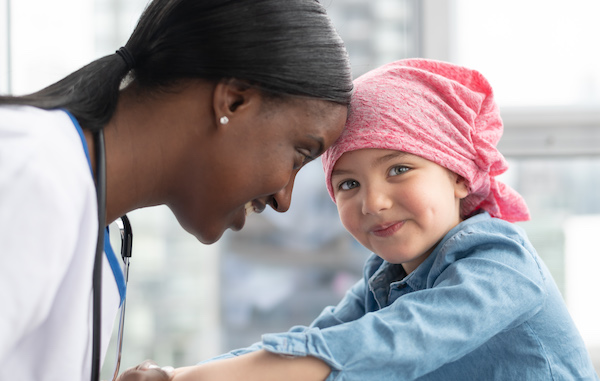
4. How might CAR T-cell therapy affect a child’s future quality of life?
With pediatric cancer, we get the privilege and challenge of treating our patients now while carefully weighing the potential impacts of treatment on their future.
Pediatric oncologists and specialists at Children’s Health and UT Southwestern collaborate to ensure each child gets the most appropriate, safest treatment based on the latest data. Our patients’ outcomes so far give us hope that KYMRIAH can contribute to an exceptional quality of life as they grow into adulthood.
About our CAR-T program
UT Southwestern and Children’s Health have vast experience with KYMRIAH. I trained under UT Southwestern faculty members who were heavily involved with our site in the clinical trial that led to KYMRIAH’s FDA approval.
Since 2015, our program has grown substantially, both in the clinic and in our laboratories. We are the second-leading treatment center by patient volume for KYMRIAH in the world. Since 2017, we have remained the No. 1 or No. 2 treatment center in the U.S.
Our patients and their families receive the most advanced care from a specialist team that includes pediatric oncologists, inpatient care providers, nurse practitioners, child life experts, social workers, and nurse navigators who are dedicated to our CAR T-cell therapy program.

For the latest news, trends, and information on care for your children, follow the UT Southwestern Pediatric Group on Twitter.
Ongoing pediatric AML research
Our research lab has identified a new target for AML, which is difficult to treat with chemotherapy and stem cell transplant. Only 50-60 percent of patients achieve remission with standard treatment, which also causes ample damage to normal cells. If their disease returns, the survival rate is just 20 percent.
The CAR T-cell therapy we have developed spares normal stem and precursor blood cells while killing leukemia cells, and it is proven effective in the type of AML that accounts for 30-50 percent of pediatric cases and 10-20 percent of adult cases.
We have a patent pending on the therapy, and we have been funded through grants from the St. Baldrick’s Foundation and the generosity of donors of the Children’s Medical Center Foundation, and others which we hope to use to conduct clinical trials in pediatric and adult patients in 2022.
UT Southwestern is uniquely positioned to translate CAR T-cell research into exceptional clinical outcomes for patients. As an international leader in researching and treating pediatric leukemia, we have the expertise and resources to give more children a healthier, happier future.
To visit with a leukemia specialist, call 469-497-2500 or request an appointment online.




